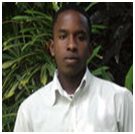Le Flambeau Foundation , Inc., June 16, 2024,
The following article is a re-print from our archives, originally published on Jun 15, 2012, written by a THE SPARK of Le Flambeau alumni member – Hernice Exare. At the time Hernice was learning English – he excelled and completed this article as it is(unedited) , in English.
 I salute the memory of every Father in the world while wishing them courage, goodwill and a Happy Father’s Day!
I salute the memory of every Father in the world while wishing them courage, goodwill and a Happy Father’s Day!
I start my perspective today with this little phrase: “No one is good citizenship, if it is not a good father”, to tell you that I see the paternity or the quality of a father as an important and highly influential factor in the functioning of a society. We all know that the family is a small group which consists of the father, the mother and their children. In this small society, I see the father as being the leading senior and responsible and concerned about his family despite the circumstances of life, and to guarantee and ensure the vitality and spiritual, moral, physical, educational, social and cultural development of his children and his entire family. I see in the fatherhood the quality to be a friend, a guide, a compass with the slightest movement, gesture, effects or action; influencing greatly the life and the fate of each child – because man is a being of relationship and relationships.
I see paternity as well and it is the vision of the father that I plan to be. However I asks myself the question: what is it that allowed me to see it thus? Ask yourself the same question before continuing the reading of this piece.
To be honest, I see paternity as the result of my experiences. My early experiences were with the absence of a father in my life for a very long period of my childhood. My life, as most of the children of Haiti who spend their entire lives without knowing, living or understanding, paternity; is an unfortunate and huge loss. My experiences in paternity came by observing the fathesr of others living around me, in the course of my life. I grew up in a family divided since I was the age of about 7 years. My father and my mother are separated. Thus, the because of the breach I was largely away from the influences of my father.
Fortunately, I had the temerity to want to live with my father when I was 18 years old and he accepted. We have passed two long years together was great in helping realize what I lost and was I had. I was able to discover the kind of father that he wished to be for me and what he expected of me as a son. Our relationship was very friendly and was wonderful. One day he told me:
“Son, if there is something that I have not been able to do for you as a father and if there is something that I have done well, do them all for your children”.
In Haiti, I found that many of the families work with a picture of the absentee father or irresponsibility, either by cowardice, or for the sake of confidence to their partners. In many cases it is by malice. All of my life I have seen fathers who do not heed to their families, to their children. They remain and watch their children become what they are and earn what they earn throughout their lives, with only the help of their mother. And some fathers can look at their sons with a single stroke of the eye and then down their heads with shame because they have done nothing to improve their lives.
I am among those who are aware of the root and the origin of such situations and for this I am thankful. I would say that this is a problem of education in every sense – in academic, social, economic, financial etc. Immaturity also. Because to my knowledge I see most often these situations are in the poor class of Haitian society. Therefore, I suggest that some fathers stay away from their families and their responsibility with regard to paternity, because they become fathers without have been prepared to be fathers. Large premature or early rate at this level in Haiti is blatant testimony! I also confess that in Haiti I see much more importance given to the mother’s day than that of fathers in Haiti.
I confess to be aware of this unfortunate situation and I would like to advise my youth that instead of accusing our fathers of irresponsibility or abandonment and their inability to take care of their families, that we seek to allow them a chance to explain their reasons. I would also ask my youth to show that we love our fathers and that they are important in our lives. Our fathers have many things to say and many have much to give us, even if later in life.
HerniceCamp-Perrin, Haiti
Youth member THE SPARK of Le Flambeau
### How to Get Involved
There are a number of ways to get involved with the Le Flambeau Foundation . As a supporter, you can donate to the foundation, volunteer your time, or become a mentor to a young person in Haiti. Feel free to contact us by clicking here.



